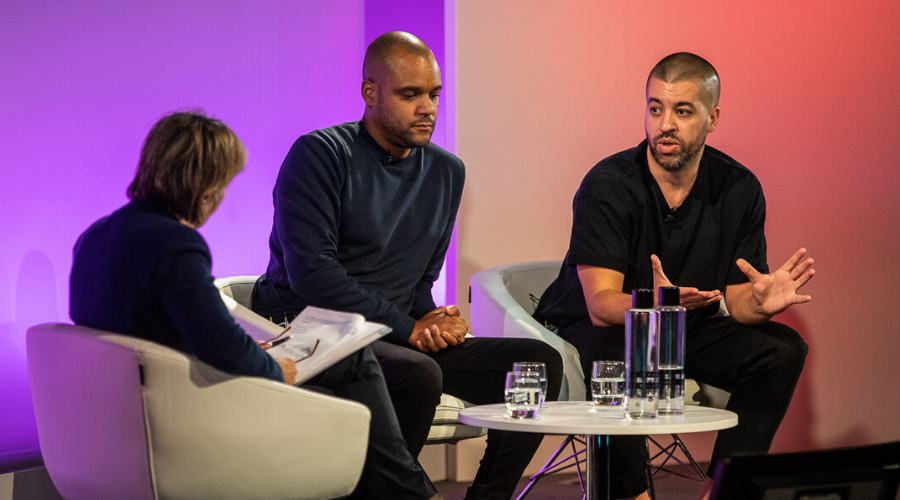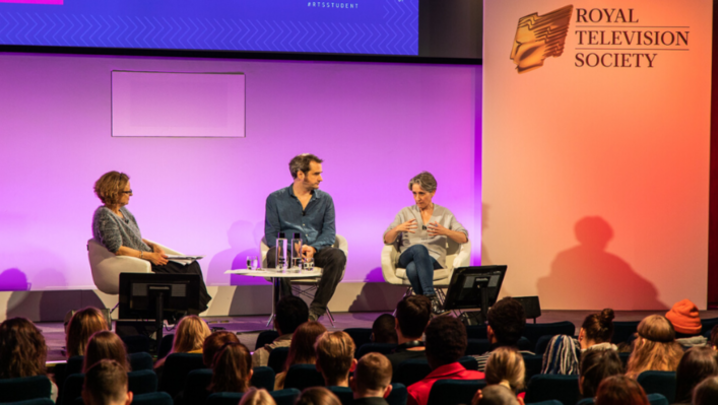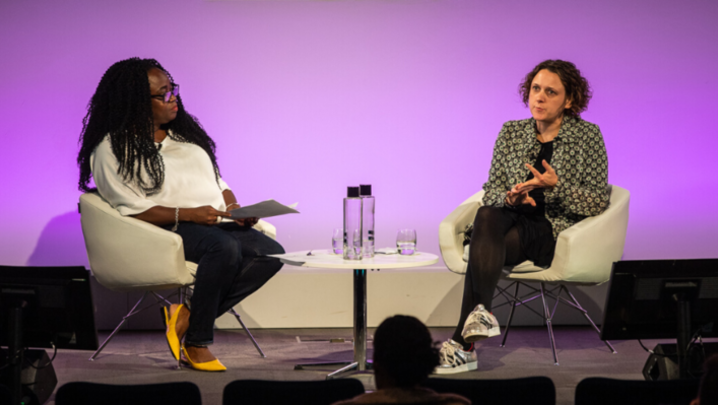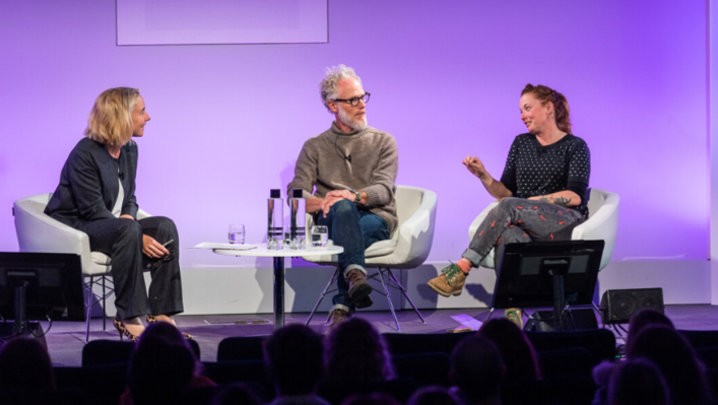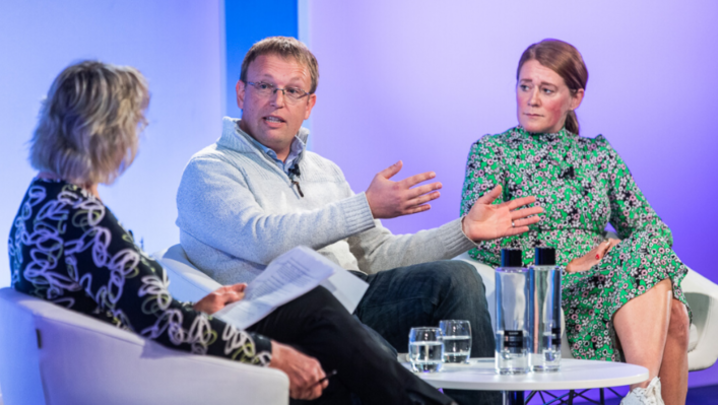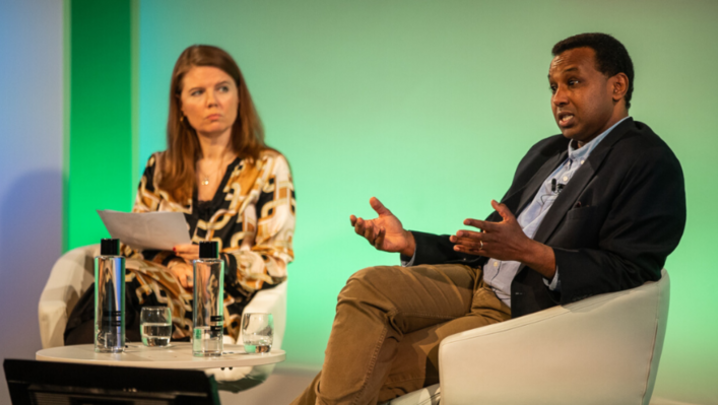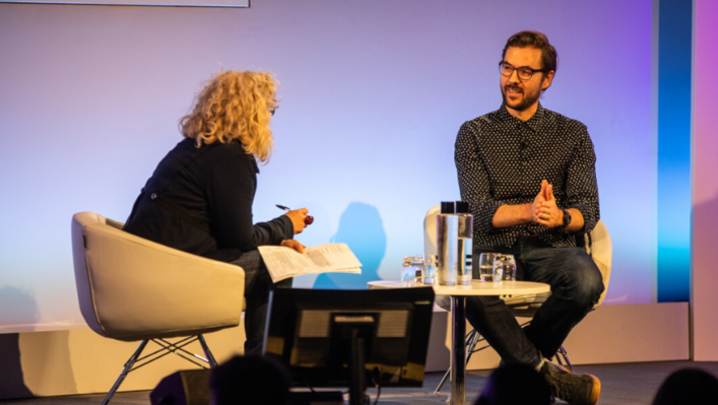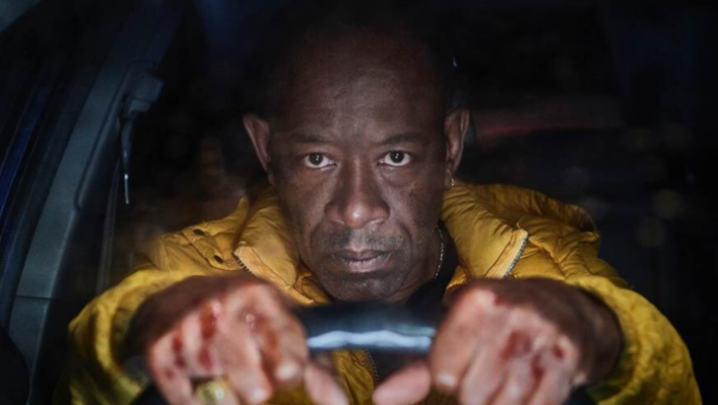South Londoners Daniel Fajemisin-Duncan and Marlon Smith penned Channel 4 series Run, which won an RTS Award for Best Drama Writer. They enjoyed further success with Lennie James’s Sky Atlantic drama Save Me, which bagged a couple of RTS awards. The duo discussed their influences, work and writing relationship with drama producer Carolyn Reynolds at this year’s RTS Student Masterclasses.
“It all started in sixth form college,” recalled Daniel Fajemisin-Duncan. “We were already friends, having grown up in the same area, and we discovered we were very much into movies; not just watching them but actually wanting to make them – and, specifically, to write them.
“We would write scripts on notepads… and I would exchange my pages with Marlon and we discovered we were ripping off… the same film-makers and doing really bad versions of their movies.”
“It was mainly Tarantino [style] monologues,” added Marlon Smith. “Spike Lee was also a big thing for both of us, especially Do the Right Thing.”
Finding an agent “was a massive part of making [it], having someone who can professionally represent you and set you up with meetings,” said Fajemisin-Duncan.
Pitching is an “incredibly important part of being a writer – you have to know how to get your idea across,” said Fajemisin-Duncan.
Gritty Channel 4 drama Run, starring Olivia Colman and Lennie James, told “stories about people that we grew up with. At that time, they were seldom seen on screen and, in some respects still aren’t,” he said.
Sky Atlantic series Save Me: “That came through our relationship with Lennie James,” said Fajemisin-Duncan. “He had three scripts and we worked with him to plot out the rest of the series and wrote episode 4 as well.” The writing duo have just finished working on the follow-up, Save Me Too.
Success in the UK has excited the interest of studios in the US: “Because of Run and Save Me we were able to go to America and pitch a couple of movies,” said Smith. “There’s one film we’ve written for Paramount and another for Warner Bros … at the moment both are in a holding pattern.”
“It’s a marathon not a 100 metre sprint,” added Fajemisin-Duncan. “You need a lot of patience and very thick skin – and the ability to always bounce back with even more passion and vigour than you had before.”
“We’ve had disappointments – things that we’ve developed for a couple of years have never made it to the screen,” said Smith. “But once you start to have some stuff commissioned, other people start reading your work and you open up other avenues.”
“We work together, plotting and outlining… and then we carve that up into an act structure and go away and write one act; the other writes act two etc… We come back together and critique, and come to a consensus on what the rewrite will be: I rewrite what Marlon has done and he rewrites mine, and you keep doing that until it finished,” said Fajemisin-Duncan.
Rewriting “is probably about 90% of what it is to be a writer – that’s largely what you’re going to be doing. But, if it’s working well, the piece is constantly getting better and better,” said Fajemisin-Duncan.
“We have similar tastes – I think that’s important when you’re looking for a partner to work with,” added Smith. “That’s why it works [for us].”
“We’re friends… I’ve known [Daniel] since I was 12 or 13,” said Smith. “We do have disagreements and it helps that we can have an all-out, crazy argument and be joking a couple of minutes later. The fact that we knew each other before we were writing massively helps.”


